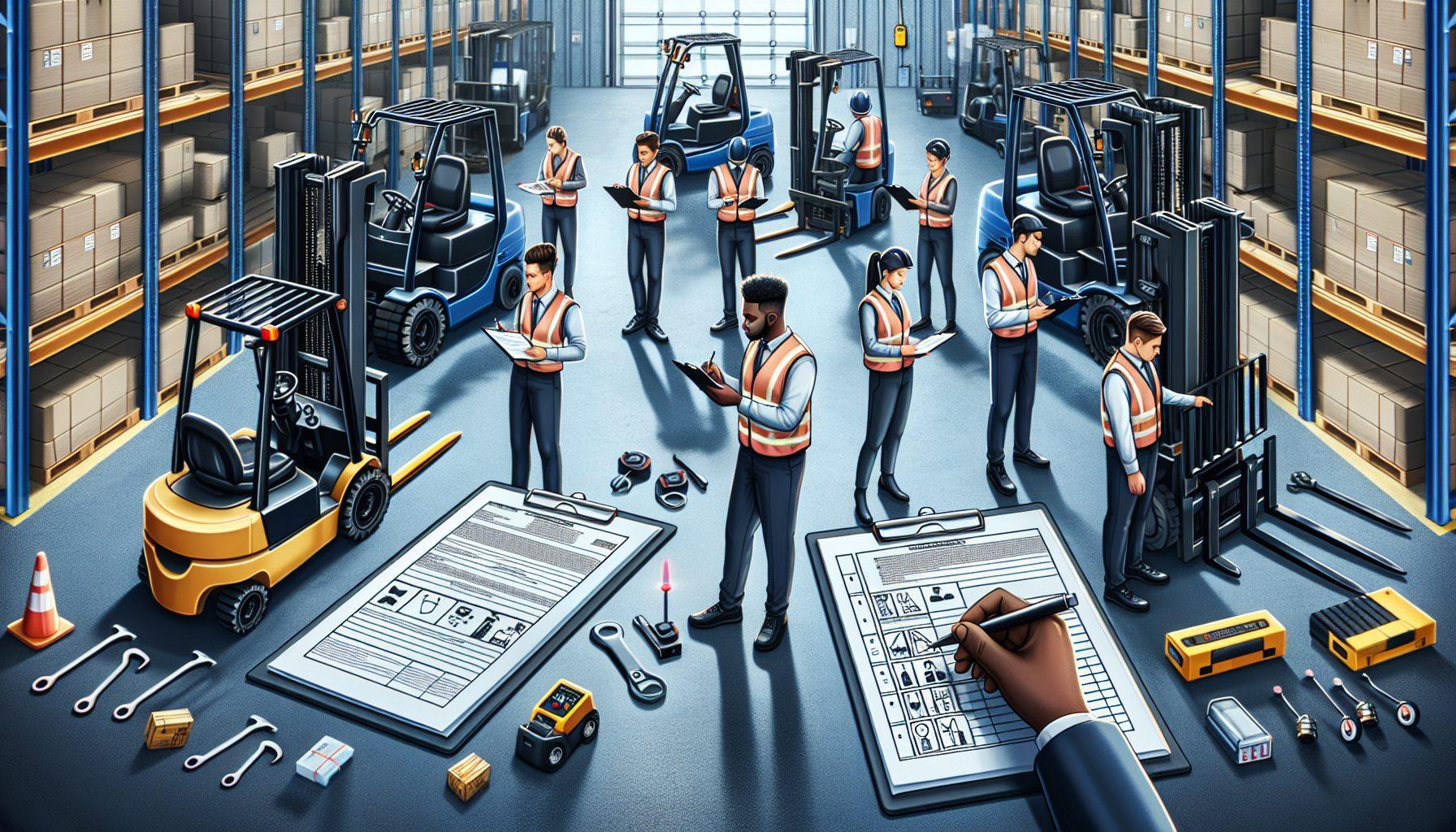Implementing proper safety measures is crucial for any warehouse operation. One area that requires careful attention is forklift fleet management. Forklifts are an integral part of warehouse operations, but they can also pose significant risks if not properly managed.
The Importance of Forklift Fleet Safety Audits
A forklift fleet safety audit is a comprehensive assessment of the forklift operations within a warehouse. It involves evaluating various aspects such as equipment maintenance, operator training, compliance with regulations, and overall safety protocols. Conducting regular safety audits not only helps to ensure the well-being of employees but also improves operational efficiency and minimizes the risk of accidents or property damage.
Here are some key steps to effectively implement forklift fleet safety audits:
- Create a Safety Committee: Establish a dedicated safety committee consisting of employees responsible for overseeing and implementing safety protocols. This committee should include representatives from different departments, including warehouse management, forklift operators, and safety personnel.
- Develop Safety Procedures: Work with the safety committee to create comprehensive safety procedures and protocols specific to your warehouse and forklift fleet. These procedures should cover aspects such as pre-shift inspections, safe operating practices, load handling techniques, and emergency procedures. Ensure that these procedures are easily accessible to all employees.
- Regular Training and Certification: Provide thorough training to all forklift operators on safe operation practices, including how to handle different types of loads, navigate through narrow aisles, and avoid common hazards. Additionally, ensure that all operators are properly certified and receive ongoing training to stay up to date with the latest safety regulations and best practices.
- Maintain Forklifts: Regular maintenance and inspections are essential to ensure the safe operation of forklifts. Implement a preventive maintenance program to inspect and service each forklift regularly. This includes checking for any mechanical issues, replacing worn-out parts, and ensuring proper functioning of safety features such as seat belts, lights, and alarms. Keep detailed records of all maintenance activities.
- Implement Safety Checks: Conduct daily pre-shift inspections to identify any potential safety hazards or mechanical issues. Operators should thoroughly examine the forklift before each use and report any problems immediately. This can include checking brakes, tires, steering, and fluid levels. Having a checklist can help ensure that all necessary areas are covered during the inspection process.
- Monitor and Analyze Safety Data: Utilize technology solutions to track and monitor forklift fleet performance and safety data. This can include using telematics systems that provide real-time insights into forklift usage, operator behaviors, and any potential safety risks. Analyzing this data can help identify areas for improvement and take proactive measures to mitigate risks.
Implementing forklift fleet safety audits is a continuous process that requires regular evaluation and improvement. It is important to adapt to changing regulations, industry best practices, and technological advancements to ensure the highest level of safety within your warehouse.
At HCO Innovations, we understand the importance of forklift fleet safety and offer comprehensive solutions to optimize safety and efficiency within warehouses. Our services include forklift fleet management, training programs, safety audits, and advanced technology solutions to enhance warehouse operations. We work closely with our clients to tailor our solutions to their specific needs and help them achieve their safety and productivity goals.
By implementing forklift fleet safety audits and partnering with experts like HCO Innovations, warehouses can create a safe working environment, reduce the risk of accidents, and achieve maximum operational efficiency.

